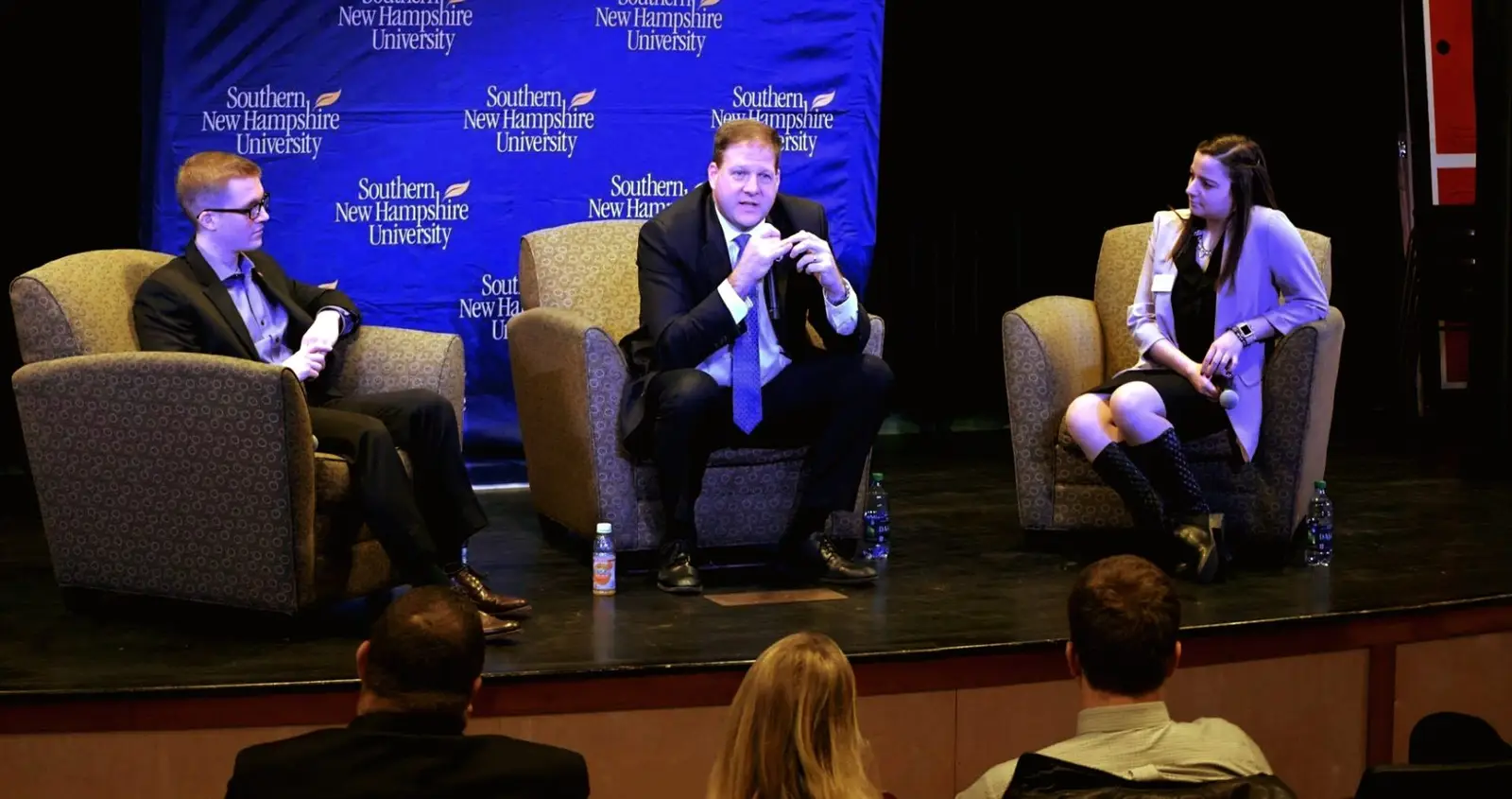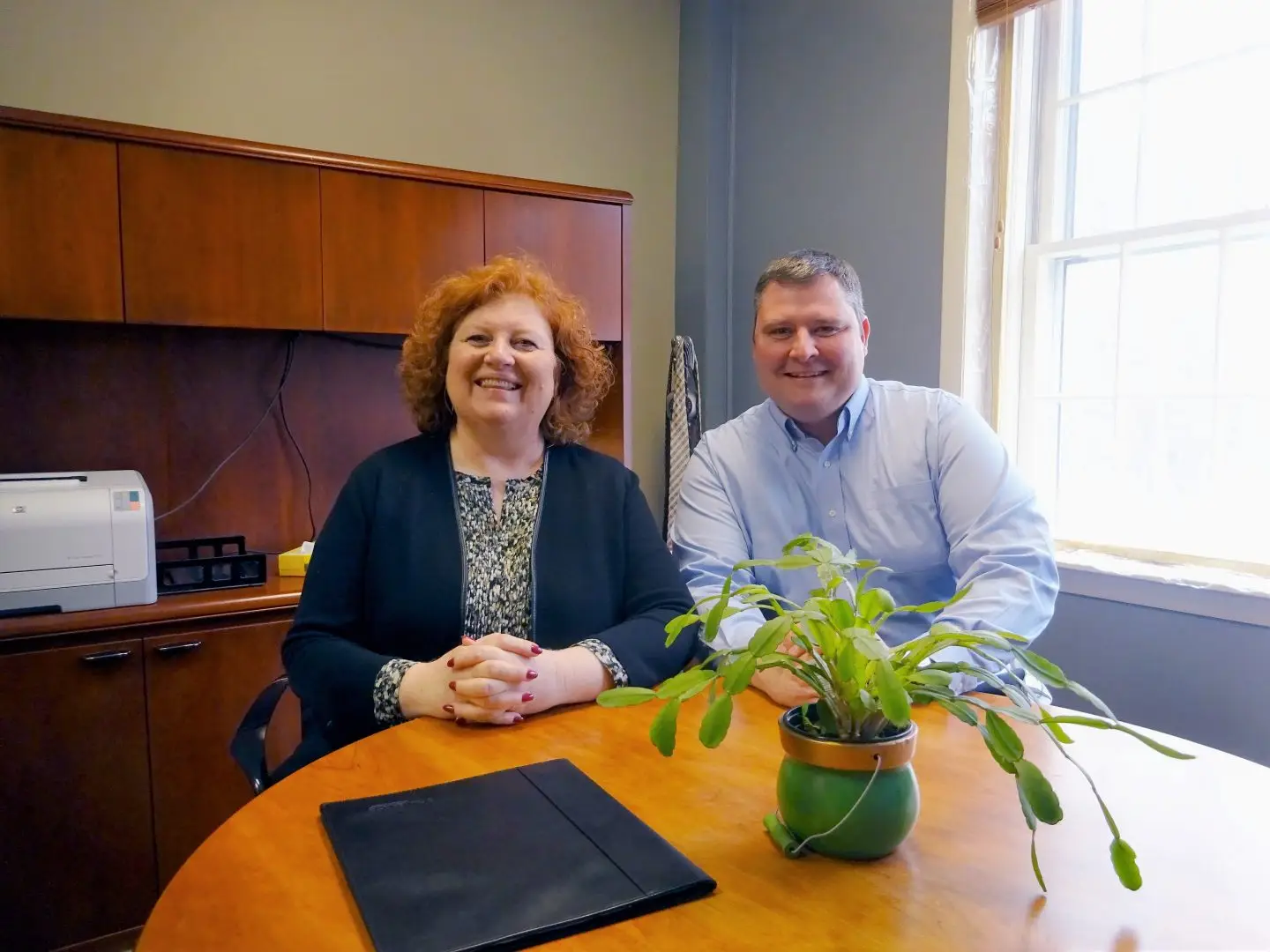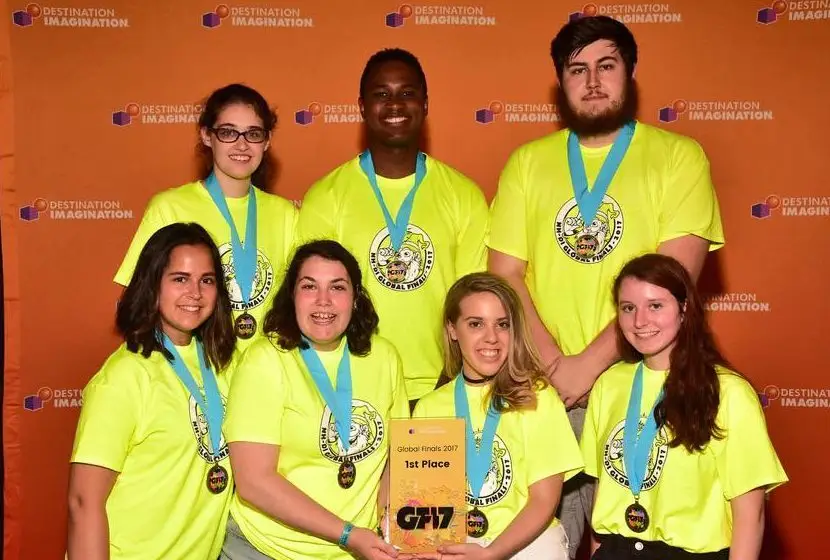New Hampshire Governor Chris Sununu joined the Southern New Hampshire University Community on December 8 for an open discussion regarding his important initiatives and visions for the state.
Sununu is serving as the 82nd Governor of New Hampshire, and is currently the youngest governor in the United States. In his first trip to SNHU since becoming governor, Sununu’s opening remarks focused on the general philosophies with which he approaches his position and his life.
“It’s just about getting stuff done,” Sununu. “At the end of the day, you just gotta get stuff done.” As one of the only two governors in the United States that serves for terms of two years, Sununu discussed how this can often affect a public official’s mentality, as though he must begin campaigning again for governor as soon as he arrived into office. Sununu stated that he and his team tried to avoid this thinking, instead simply focusing on what he hoped to accomplish. “We can’t think of everything in two-year chunks… you [need to] think 5, 10, 20 years down the road.”
Following his opening statements, Sununu answered questions from the audience which covered topics ranging from sustainable energy and drug prevention programs to immigration and STEM education.
Reagan Murphy, SNHU junior and representative from the New Hampshire Teen Institute, a local nonprofit dedicated to “empower[ing] teens to lead healthy lifestyles and create stronger communities through community-focused prevention and leadership workshops,” asked the governor about his commitment to addiction prevention.
“There are a lot of schools in the state that don’t have prevention programs. So my plan is to put a prevention program from first to twelfth grade with an evolving message,” said Sununu. Their “internet-based” program will be unique in its technological aspects and accessibility, with one of the main intentions being consistency of message, regardless of school or location.
Sununu discussed placing the ownership of this message on those it was targeted at. “I created a youth prevention council,” he shared, “where I brought in youth from all across the state and I said, ‘Look. A bunch of bureaucrats and even marketing folks are not the ones to tell you how to talk about drugs. You are. You design the message. You write the narrative.’”
As the question and answer period came to a close, University College President Patty Lynott moved away from strictly New Hampshire and policy-based questions to tackle something observed on a larger scale. “I’m witnessing something in society that I never thought I would witness in my lifetime: the #MeToo movement,” Lynott said. “Is this a ‘blip’, is this a ‘change’… is the world going to change?”
“It’s a really great blip,” Sununu responded. “I’ve been very outspoken when it comes to sexual harassment: Zero tolerance. I don’t have any tolerance for any of it, any time it’s a public official, you have to resign immediately… I don’t care what the politics are; I don’t care what your business is. What I think is happening is an incredibly positive thing, and I hope everyone else sees that. We’re finally changing our culture to say ‘Speak up. It’s okay to speak up, we’re going to support you to speak up.” There’s clearly people who for years, decades, never felt the power to speak up. And you have a society that says, ‘Now we’re going to listen.’”
Sununu’s approach to governorship isn’t too different from that of his every day life. He told students of the most important lesson he learned hiking the Appalachian Trail when he was young.
“Leave it better than you found it. Leave the room you walk in better than you found it, leave the business you engage in better than you found it, so that’s our purpose.”




